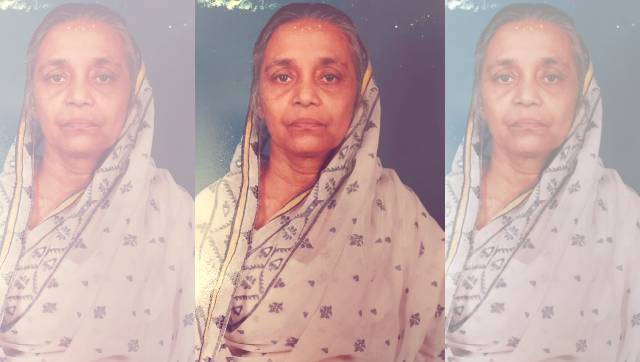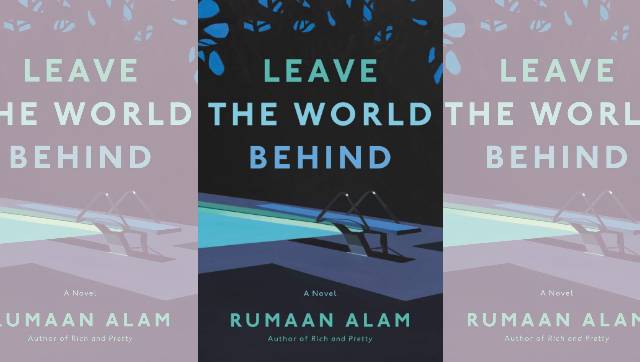Exactly a month ago my grandmother, my father’s mother, was still alive. When she contracted the coronavirus in September, she spent a few weeks in the ICU of a hospital in Kolkata where her health deteriorated rapidly. Even after testing negative, there was barely any improvement in her physical state as the virus had somehow drastically affected her aging heart. Although something miraculous happened, and in a final battle against mortality she showed immense zeal and grit, turning things around for herself, and our family — at least for a brief while. She returned home from the hospital, and spent her last two months there with my parents, trying her best to recover. The drugs made her memory fade away slowly but when I visited home from Delhi to see her, she touched my hand and said, “I can’t remember your name right now but I have known you for a long time.” On the early morning of 25 December 2020, she decided that’s it, and went away to celebrate Christmas elsewhere with the many people she had known and loved before us, including hopefully, my grandfather. I would have found it uncanny that I was reading Rumaan Alam’s compelling new novel Leave the World Behind at the same time when I was spending a month at our Kolkata home, if this previous year hadn’t so frequently left us all confounded. In Alam’s masterful third book, when an unknown calamity strikes, causing a city-wide blackout, it leaves a white, affluent (“They’d made a nice life for themselves, hadn’t they?”) Brooklyn family of four stranded in a rented vacation home in a remote corner of Long Island where they have arrived expecting a quiet reprieve from life in New York City. An unexpected midnight knock on the door also brings an elderly black couple in the house, who claim to own the property. As these two families, strangers to each other but stuck together being choiceless in the wake of a catastrophe, battle personal prejudices and suspicions to survive in each other’s company, Alam’s narrative starts taking shape. Some reviewers have called this an end-of-the-world novel, considering that the scale of the disaster unraveling outside the house — where the six principal characters meet and where much of the novel takes place — is unknown yet seemingly cataclysmic. But it’s equally a novel about world building; a world in which one is thrown in without caution, and expected to not only coexist but also find meaning in an involuntary collective experience. Never since my schooldays had I spent so much time in the same house as my grandmother, as I did last November when I was home for almost 25 days. The day she was discharged from the hospital, I received a call from my father who asked me if I can come back to see her — what possibly would be for the last time. I asked him if I could come in a week, and remember him saying that it might get too late by then. I bought a plane ticket for the next day but the person I met on returning, even though bearing a resemblance to my grandmother, was a frail, hastily vanishing version of her. [caption id=“attachment_9229181” align=“alignnone” width=“640”]  The writer’s grandmother. Image courtesy Sayantan Ghosh[/caption] Over the next three weeks, however, I saw her sit up straight on her bed, walk to the next room without needing much help, ask me if she’d ever be able to eat ice-cream again, put on a new sari so she looks good in a photograph which I wanted to click; even assure me before I left that she’d be fit to go for a drive around Kolkata with me the next time I am in town. In the 30-odd years that I had known her, we had never had such conversations before. I had no idea she was fond of eating ice-cream; every time we met, we primarily spoke about what was going on in my life, and even when I asked about her life she’d rarely respond with anything outside routine responses — stressing on the fact that her days and nights were mostly unremarkable. But with an invisible deadly virus still out there, and us locked inside the house — trying to step out as little as possible to ensure that my grandmother remained safe — possibly for the first time both she and I went beyond merely exchanging life information and make a delayed but sincere effort to know each other a little better. Amanda and Clay and their two children — Archie and Rose — too, make similar attempts with the owners of the home they are renting, GH and Ruth, while the world outside purportedly collapses. They barely see anything change when they look out of their windows; making do with scraps of information, which they receive sporadically over the course of the novel. There were days when my grandmother would find it hard to breathe, and the doctor would have to be called in who would ask us before leaving to stop hoping against hope. The three of us would go quiet for some time but soon return to “living” again — checking our phones for news updates, bathing, eating, emailing, trying to sleep. What Alam calls in his book, “Business as usual, the business of being alive.” In Alam’s universe, home gives an illusion of a safe space; like our own homes have since the lockdown was announced. Home is supposed to be the place where no harm could touch us, and yet a woman who barely ever stepped out of her house in her life had to bear the brunt of it. It’s human adamancy which makes us think that the world is ending, or at least phrase the thought in that manner.
The truth is, and always will be, that it’s we who are nearing the end of our term on this planet, while the world is where it was millions of years ago, watching and waiting.
Alam’s big ideas book deals with major themes of race, climate change, parenting, greed and, of course, the Armageddon. But my major takeaway from it has been this unique humanness, the throwaway acts of kindness even amid the everyday brutalities, which he populates the novel with. Imagine yourself in the middle of a disaster novel where the biggest disaster is not a celestial event but your own daily disasters. Alam writes, “Home was just where you were, in the end. It was just the place where you found yourself.” Between the hospital wards, and my uncle’s home and our house, perhaps my grandmother too struggled to call a place her home during her final days. But I’d like to live with the belief that she had found the peace and laughter of a home with us. In Leave the World Behind, the protagonists are able to hear a mysterious sound from the sky which leaves them perplexed and shaken. Even though I have no faith in the idea of an afterlife, every time I hear the sound of thunder from now on I’d try to convince myself that it’s my grandmother trying to let me know that she’s having her favourite flavour of ice-cream in some corner of this vast universe. Because as Alam’s novel reminds us, the real apocalypse won’t be brought upon us by the stars; it’ll happen when we, people who have inherited the earth, stop listening to one another — especially those whose stories may seem unremarkable at first.


)
)
)
)
)
)
)
)
)



